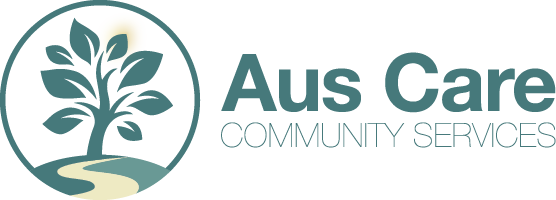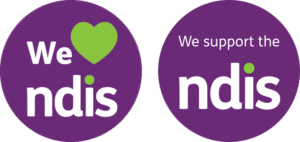Starting your journey with the National Disability Insurance Scheme (NDIS) can be both exciting and overwhelming. One of the most important steps is your first NDIS planning meeting, where you work with an NDIS planner or Local Area Coordinator (LAC) to design your personalised plan. This meeting shapes the supports and funding you receive, so being prepared makes all the difference.
At Aus Care Community Services, we help participants across Australia navigate their NDIS journey with confidence. Our experienced team of Support Coordinators and disability professionals are here to guide you through the process, ensuring your needs and goals are clearly understood and properly represented.
If you are getting ready for your first planning meeting, here are expert tips to help you feel confident, informed, and in control.

Understanding the Purpose of Your NDIS Planning Meeting
Your NDIS planning meeting is the starting point of your support journey. It is not just a conversation about funding; it is about you, your life, and what you want to achieve. The NDIS planner’s goal is to learn about your daily routines, challenges, and aspirations so they can create a plan that reflects your unique circumstances.
During the meeting, you will discuss:
- How your disability affects your day-to-day life
- The supports you currently use
- The goals you would like to achieve
- What types of help you need to live more independently
Remember, this is your opportunity to share your story. The more open and honest you are, the more accurate and helpful your plan will be.
Start by Setting Clear Personal Goals
The NDIS is a goals-based scheme, meaning your plan revolves around what you want to achieve. Before your meeting, take some time to write down your short-term and long-term goals.
Examples of NDIS goals include:
- Becoming more independent at home
- Improving mobility or communication skills
- Building social connections and joining community programs
- Finding suitable employment or training
- Developing life skills such as budgeting or meal preparation
These goals will help your planner decide what supports fall under Core Supports, Capacity Building, or Capital Supports. Your Support Coordinator at can help you refine these goals, so they are realistic and measurable.
Gather All Relevant Reports and Assessments
Bring along any documents that provide evidence of your disability or support needs. These may include:
- Medical or specialist reports
- Therapy notes or progress reports from allied health professionals
- Letters from doctors, carers, or educators
- Assessments that show how your disability impacts daily living
The more detailed your evidence, the stronger your case for appropriate funding. can assist you with gathering and organising this paperwork before your meeting, ensuring everything is clearly presented.
Make a List of Your Current Supports
Write down all the supports you currently receive, both formal and informal. This might include:
- Family or friends who assist you regularly
- Community programs or volunteer organisations
- Professional supports such as occupational therapy, physiotherapy, or counselling
- Social groups or day programs you attend
This list helps your NDIS planner understand what is already working well and where you need additional help. It also identifies any gaps in support that your new plan can address.
Be Honest About the Challenges You Face
It is natural to focus on what you can do, but your planner also needs to understand what is difficult for you. Be honest about the areas where you need help. This ensures your plan includes adequate funding and the right supports to meet your needs.
You might explain challenges such as:
- Difficulty travelling independently or using public transport
- Struggling to manage personal care or household tasks
- Needing assistance to access community activities or appointments
- Experiencing communication barriers or anxiety in social settings
The clearer your examples, the easier it is for the planner to match your supports to real-life needs.
Bring Someone You Trust to the Meeting
Having someone you trust by your side can make a big difference. You can bring a family member, carer, friend, or your Support Coordinator from Aus Care Community Services. They can help you stay calm, take notes, and ensure nothing important is missed during the discussion.
If you work with a Support Coordinator, they can also help you clarify your goals, explain your support needs, and advocate for your interests throughout the meeting.
Prepare Questions to Ask Your Planner
Your NDIS meeting is a two-way conversation, so do not hesitate to ask questions. The more you understand, the better you can make decisions about your supports. Here are some helpful questions to ask:
- How will my plan be reviewed or updated?
- What can I use my Core Supports funding for?
- Can I change providers if I am not happy with their services?
- How do I access my funding once my plan is approved?
- What happens if my needs change before the next review?
At Aus Care Community Services, we help participants interpret NDIS language and processes so that you always know where you stand and what your options are.
Take Detailed Notes During the Meeting
Write down key points, supports discussed, and any action items. These notes will be useful when you receive your approved plan. If you attend with a Support Coordinator, they can take notes for you and explain any unfamiliar terms afterwards.
Taking notes also helps ensure your final plan reflects everything discussed in the meeting.
Understand What Happens After the Meeting
Once your meeting is complete, your planner will finalise your NDIS plan. You will then receive a copy through the myplace portal or by mail. Review the document carefully and make sure:
- Your goals are written correctly
- Your supports are appropriate and sufficient
- Your funding categories match your needs
If something does not look right, you can request a NDIS plan review. The Aus Care Community Services team can help you through this process to ensure your plan accurately represents your situation.
Stay Positive and Take Your Time
Your first NDIS planning meeting is just the beginning. It can feel overwhelming but remember that this is your opportunity to take charge of your supports and work towards a more independent future. Focus on your strengths, speak openly, and do not rush through your responses.
Your planner wants to understand how they can best support you, so being yourself is the best approach.
How Aus Care Community Services Supports You Through the Process
Preparing for your first NDIS meeting can be stressful, but you do not have to do it alone. At Aus Care Community Services, we offer:
- NDIS Support Coordination at Levels 1, 2, and 3
- Assistance with Daily Living and Personal Care
- Community Participation and Social Activities
- NDIS-Specific Housing and Supported Independent Living (SIL)
Our team provides end-to-end assistance, from helping you prepare for your planning meeting to implementing your approved supports. We ensure your plan reflects your true needs and that you receive the funding you deserve.
FAQs About Your First NDIS Planning Meeting
- How long does an NDIS planning meeting take?
Most planning meetings last between one and two hours, depending on how much information needs to be discussed. - Can I change my plan later if my needs change?
Yes. You can request a plan review at any time if your circumstances or support needs change. - What happens if I forget to mention something during my meeting?
You can contact your planner after the meeting or raise it during your plan review. It is always better to include as much information as possible at the start. - Can my Support Coordinator attend the meeting with me?
Absolutely. In fact, having a Support Coordinator from Aus Care Community Services attend can help ensure your goals are communicated clearly and that your plan accurately reflects your needs.
Ready to Take the Next Step?
Your first NDIS planning meeting is the foundation of your entire NDIS journey. By preparing ahead of time, being open about your needs, and setting clear goals, you can create a plan that truly supports your independence and wellbeing. Remember, you do not have to face the process alone.
At Aus Care Community Services, our dedicated team is here to guide you through every stage, from preparing for your meeting to implementing your approved plan. Whether you need Support Coordination, Social and Community Participation, or Assistance with Daily Living, we are committed to helping you reach your goals with confidence.
Contact Aus Care Community Services today to speak with a friendly team member and start your NDIS journey the right way.
Final Thoughts
Your first NDIS planning meeting is a major milestone in your journey towards independence and empowerment. The best thing you can do is prepare thoroughly, stay honest about your challenges, and bring someone who supports you. With the right preparation and professional guidance from Aus Care Community Services, you can walk into your meeting feeling confident, informed, and ready to take control of your future.





